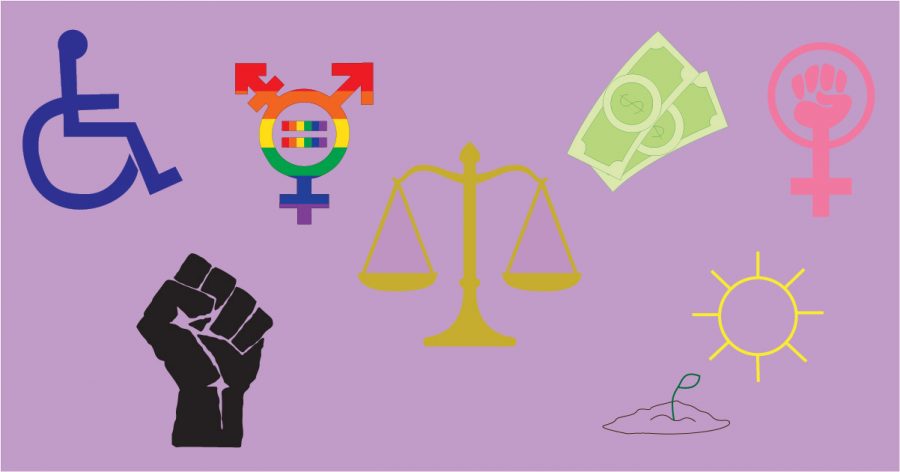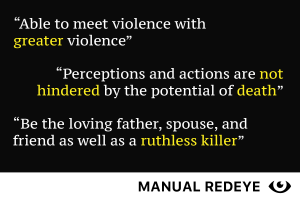Do’s and dont’s of supporting justice movements
September 15, 2020
As a multitude of justice movements have come to the forefront of conversation in recent years, you may wonder how you can contribute, and how to do so properly. With Manual’s student body being predominantly white and financially secure, it can be difficult for many students to understand exactly how to uplift people without certain privileges.
Since justice movements are not only looking for awareness but also for justice, it requires more thinking about the meaning and the effects behind your actions. So, here is a basic guide for what you should and shouldn’t do if you want to meaningfully support movements for justice.
What people do wrong
Taking the spotlight
When fighting for disadvantaged people, it’s crucial you do not speak over them. We’re constantly taught to be leaders in school, but sometimes it’s better to be a follower if you’re not part of the group you’re fighting for. For centuries, marginalized groups never had their voices amplified and rarely got to be the face of an issue concerning them, and make that never if they fit into multiple marginalized groups.
Spreading unhelpful information
It’s really easy to just repost anything you see with a click of a button on social media. But, before you do that, always make sure it actually tells people something new or not well-known. Nobody needs to see edits of Sanrio characters saying ACAB for the 50th time. Sometimes, it can also make a movement seem like an afterthought if you randomly mention them under unrelated pictures without providing any other information. Instead, post resources that spread awareness on specific ways to help a movement.
Overstepping the boundaries as a privileged person
One of the most overlooked parts of trying to understand underprivileged peoples’ experiences and emotions is to not overstep the boundaries of your differences. The key is trying to understand, while knowing that you would never be able to fully understand. Don’t try to assume what marginalized people think of someone else’s actions, unless it is something already widely known to be offensive, such as saying slurs. Remember you are trying to be an ally, not a part of the group itself nor a savior of some sort. So if you’re not completely sure if something is offensive or not, take the time to learn what the affected people think before you attempt to speak on the issue and possibly get it wrong.
Misusing terms and symbols
This goes along with further educating yourself on others’ issues, and popular terms and symbols are no exception. Misusing, which includes overusing, terms and symbols takes the historical significance and meaning out of these essential parts of a movement. For example, the Black Power fist is meant to unify people in support of Black lives. If you use the Black Power fist at random times, either as a trend or at places where no changes could be made, it can reduce the meaning of the gesture for some and make it harder for people to know whether someone supports Black lives or are mocking the sign.
Not being intersectional
You simply can not support one justice movement without supporting another justice movement. Environmental justice without racial justice removes the justice aspect of it, and then it is just environmentalism. The same goes with all other justice movements. To be intersectional, it means you take into account people who face multiple types of oppression within your movement. When you’re not intersectional, you leave out a huge chunk of the population you’re trying to stand up for and continue the pattern of discriminating against people who do not fit the “norm.”
What you should do
Listen to the people who are affected
Always try to find and listen to the message of a movement directly from the people it’s supposed to support, not only other sources. People naturally have their biases or lack of understanding, which can give you a false, or not completely true, the idea of what a justice movement is striving for.
Consider a variety of opinions
Don’t be afraid to research less mainstream beliefs. You shouldn’t feel like you need to stick along with the system because that’s what the majority of people believe. In terms of the racial justice movement, defunding the police has caught on with nearly half of the population but most are hesitant on abolishing the police, according to a poll done by Gallup. Even so, you should still acknowledge and explore the idea before you immediately jump to a decision based on what the majority believes, as you should do with all opinions.
Fact check
Many people tend to forget due to the rapid spread of information online. But, there are always people trying to damage movements they disagree with, so just sharing anything you find on Twitter without fact checking the info can greatly mislead people and their priorities.
Buy from businesses that take action for the cause
Many corporations like to start selling rainbow merchandise right when June comes around, so they could seem like they stand together with the LGBTQ+ movement. The main problem with that is it number one, does not give the profits to help LGBT people and number two, glorifies the struggles of LGBT people. If you want to support a movement, while also spreading awareness, through clothing, do it in a way that also benefits the cause itself by buying clothes from small businesses who donate at least part of their profits to organizations that directly aid discriminated people.
Empathize with marginalized peoples’ experiences
One way to try to understand the experiences—along with the emotions that come with them— of someone else is to “put yourself in their shoes.” For instance, if you wish to have a better understanding of the experiences of racial minorities, befriending blatant racists so you seem more “tolerable of other opinions” may hinder that understanding since those racists would not give you even close to the same treatment if you looked like a person of color. Try to think about certain times in your life and imagine how it would differ if you looked like someone else. You may never be able to strip yourself of your own privilege, but not taking advantage of that privilege for your own benefit can help you later on when speaking with people who live vastly different lives from your own.
Main Takeaways
Listen to people, and always continue to learn from your conversations. Many of these recommendations can become a habit if you just focus on building an understanding with people who have been treated unfairly.
Lastly, remember why you consider yourself a part of a movement. Getting justice for yourself or others takes a lot of work, so as long as you’re trying to help, it means you care, even if you’ve made small mistakes in the past.









